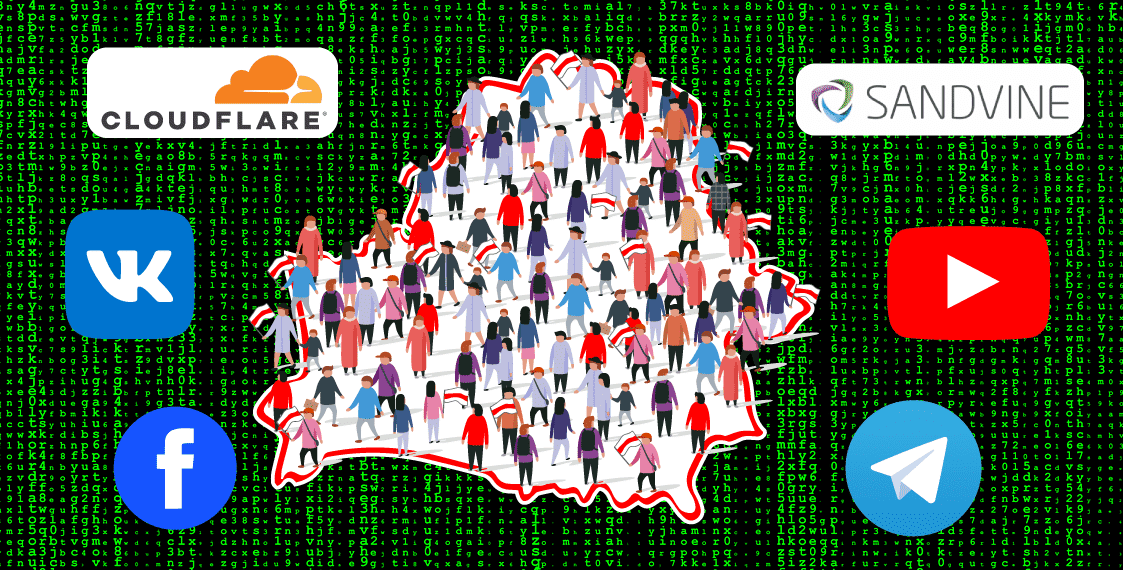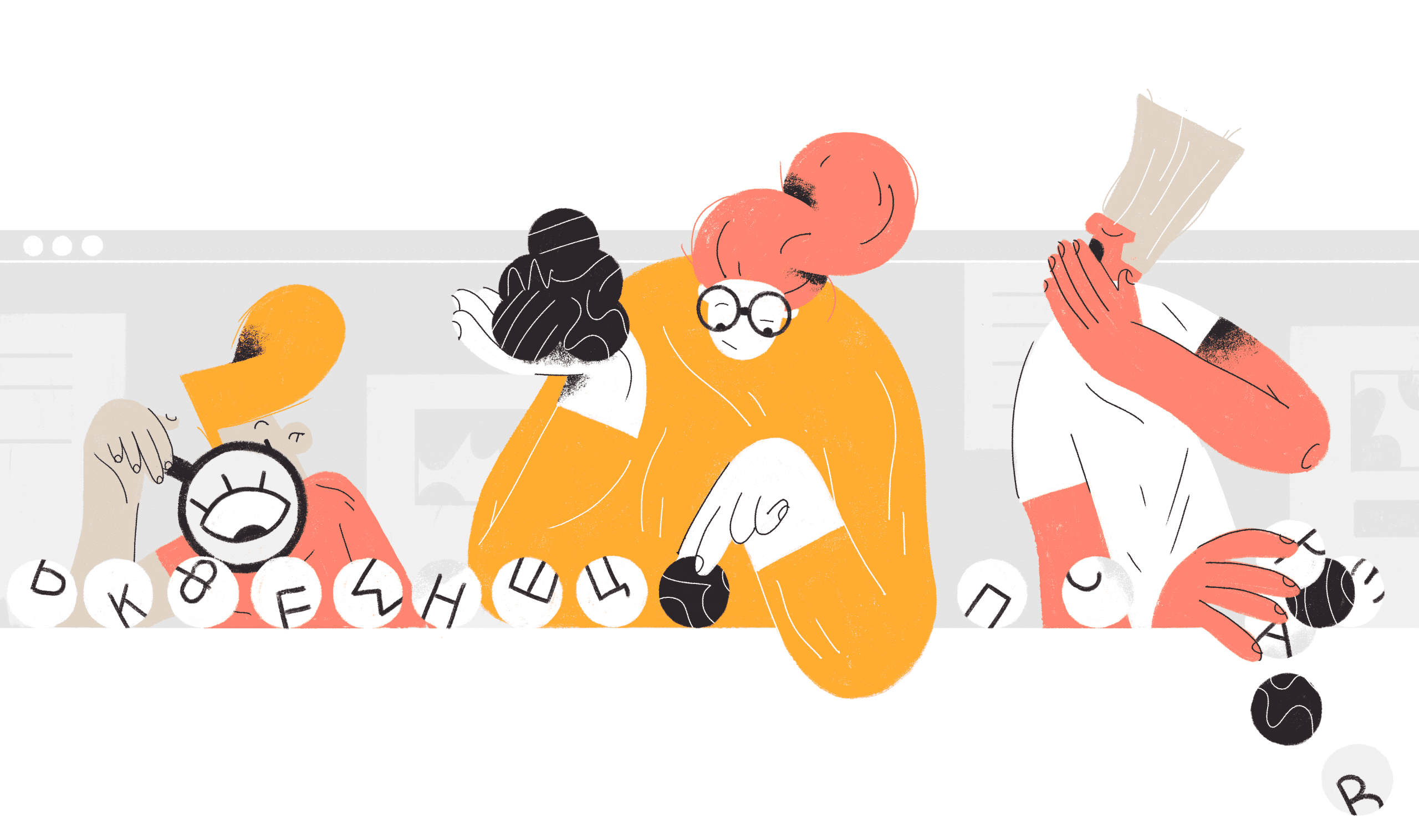
Children of Exile: The Births “Sowing Hope” in the Camp of Nicaraguan Farmers

PUBLICIDAD 1M
PUBLICIDAD 4D
PUBLICIDAD 5D
“How do we make sure we are heard? Apparently, we need to present a united front to the tech giants because the individual voices of independent media

Information consumers and regulators are both increasingly questioning the dominance of giant digital corporations, their unprecedented influence on information consumption, and the continuing monopolization of digital spaces. The governments of the United States, France, and Australia are turning to laws in their attempts to stop the uncontrolled and growing influence of Big Tech, or large digital corporations like Google and Facebook. The United States is discussing an antitrust law, Australia passed a law that makes Google and Facebook pay media outlets to use their content, while in France, the media succeeded in obtaining 100 million euro in compensation from Google. In other words, the expansion of Big Tech is facing a pushback, but the success of this pushback is far from certain. Even in places like France and Australia, many experts think that deals with Big Tech will mainly benefit large media corporations rather than small and medium-sized independent media.
It is only in countries with strong democracies that media can rely on this kind of support from the government. In places where independent journalism is under pressure from authoritarian regimes and oligarchs, the over-centralization of the digital marketplace in the hands of a few big players creates additional challenges. In these countries, the government is skilled at using the big platforms’ obscure rules and algorithms to put pressure on independent media outlets. As a result, for journalists, Big Tech is both their friend and foe. Platforms run by foreign digital corporations are these journalists’ only chance at being able to compete, at least to some extent, with government and oligarchic media outlets.
In this article, journalists from Nicaragua, Moldova, Belarus, and Ukraine explore the challenges independent media encounter and how they try to survive in the digital world. Spoiler warning: Despite differences in languages, regions, and even continents, the circumstances in which media outlets find themselves are very similar.
Following the 2018 mass protests in Nicaragua and the ensuing political repression, the persecution of journalists by Daniel Ortega's regime has reached alarming proportions. In the face of the attacks, independent media continued to operate. However, to do so, they had to make a switch from traditional to digital platforms. Lucia Pineda Ubau, a journalist and director of the news channel 100% Noticias, reports that after their channel had been blocked from broadcasting, its offices confiscated, and she and her colleagues imprisoned, their channel moved to YouTube. They did that to stay connected with their audience and monetize their content. Lucia explains: “At the moment, the only resources that 100% Noticias can depend on for its livelihood, to support its work and its visuals, are the website, the YouTube channel, and other social media.”

Image: Confidencial
On the one hand, tech giants’ platforms enable independent media to operate, even if in a limited capacity, in countries with undemocratic regimes. On the other hand, these platforms threaten these media organisations’ financial survival by taking a bigger portion of the money coming from advertising. According to MarketingLand data, in the US alone, Facebook, Google and Amazon take 70% of digital ad spending. It is unknown how much advertising money in Nicaragua comes from and goes to YouTube, a Google platform. YouTube has never fully disclosed the details that could help identify how much each content creator is paid.
Low ad revenue is not the only problem that independent media outlets encounter on YouTube. The rules of the platform disregard the specifics of media operations in countries like Nicaragua, and Daniel Ortega's regime is taking full advantage of this by looking to demonetize and block popular media on YouTube. State television and media outlets owned by the president's family routinely make copyright complaints against independent media content. The catch is that only pro-regime channels can cover official events; independent media are not even allowed to attend them. When independent media use videos featuring the president, complaints are made against them, and YouTube blocks the videos without considering the situation in the country.
Last year, the 100% Noticias YouTube channel with its 194,000 subscribers was blocked as a result of actions taken by a pro-government broadcaster. Canal 4, owned by the Ortega-Murillo family, submitted around 50 copyright infringement complaints about the channel to YouTube. The maximum number of strikes that YouTube allows is three, after which blocking was inevitable.
“They are blocking us from these information distribution platforms, trying to get us to give up, put our hands up,” the channel director Lucia Pineda Ubau concludes.
For more on the challenges and opportunities presented by YouTube in Nicaragua, read this Confidencial story (in Spanish).
In Moldova, just like in the rest of the world, Google dominates the online advertising market. It is rare for an advertiser to purchase ad banners directly from media outlets. Ads are typically shown on websites that have Google AdSense enabled, based on advertiser-selected geographic and contextual attributes.
Politicians, especially corrupt ones, find that this kind of online advertising serves them better. In Moldova, Google does not provide transparent data on political advertising. Media outlets, NGOs, and regulatory bodies are unable to check how much each individual politician spends to promote themselves using the tech giant’s platform. Corrupt politicians’ ad banners with no accountability are a serious problem for a country like Moldova, where corruption is widespread.

Image: Ziarul de Gardă
Ahead of the November 2020 elections, these banners started to show up frequently on independent media websites. The website of the investigative newspaper Ziarul de Gardă was literally flooded with them, notwithstanding the fact that its editors refuse to engage in political advertising on principle. On the Google AdSense platform, certain types of ads can be blocked by flagging them as unwanted. Recently, however, companies that purchase Google ads have been finding ways to infiltrate websites that have blocked election or political ads, explains Ziarul de Gardă. These banners had to be blocked manually, but it took so much time and effort that in the end it was easier for the media to move away from Google AdSense completely and lose it as a source of income.
Petru Macovei, director of the Association of Independent Press in Moldova, believes that the media need to start a dialogue with large companies like Google for better accountability and transparency in advertising.
“A lot of politicians have realized that they can infiltrate platforms that do not sympathize with these politicians, because these politicians are corrupt and dishonest. They found a way and a trick to still infiltrate these media platforms. This created another challenge for journalists and media outlets, which need to be careful so that the platforms in which they have been investing over the years and which enjoy a good reputation and citizens’ trust, are not used by politicians for election purposes,” says Makovei.
For more on political advertising, independent media, and Google, read the article by Ziarul de Gardă in Russian or English.
These days, Belarus has a complicated relationship with digital corporations. After the August 2020 presidential elections were rigged by the authorities, Belarusians found themselves in a new digital reality. During the brutal crackdown on peaceful protests in the country, Internet access was completely disabled for three days and dozens of information sites were blocked, courtesy of the U.S. company Sandvine Inc. that provided technology to the Belarusian government. Independent media outlets, bloggers, and activists found it difficult to share information and evidence of the harsh crackdowns. It was only after an investigation by Bloomberg and protests at the Sandvine building in San Francisco that the American company terminated its contract with the Belarusian government.

Image: Euroradio
According to Euroradio, a Belarusian independent media outlet, the problem is that digital corporations see Belarus as a “third digital world” country: it is so remote that it is difficult for the companies to imagine what may be happening there. Aside from that, the media notes, most of the time the global Big Tech does not see the small Belarusian market as a separate entity.
The tech giants do not have offices in Belarus, and any issues that arise are handled by their offices in Moscow. This is a challenge especially for those who create YouTube content in the Belarusian language, that is, mostly small and medium-sized independent media outlets and bloggers. Google considers Belarusian a “minor” language, limiting paid promotion for videos in the language. As its Moscow office explained, Google, one of the world’s biggest corporations, cannot afford to offer support for “minor” languages. State-owned media are taking advantage of this: they mostly operate in Russian, and their ad videos get a lot of exposure.
The Russian office also handles content blocking. Negotiations with the platform take a lot of time, and it is hard to identify the specific criteria it uses for blocking. “We have permanently removed your channel from YouTube. In the future, you will not be able to access, own or create other YouTube channels.” This message was received by the editors of the Belarusian website Reform.by. “Any attempts to understand the reasons for the blocking were futile. As a result, the outlet’s entire video archive had been deleted,” reports the Reform.by team. The website had been regularly publishing videos of street protests from August 2020 onward.
After several days of negotiations, YouTube restored the account but failed to produce an explanation. Being blocked, even if for a few days, can deliver a big blow to a small project.
For more details on digital corporations in Belarus, see the Euroradio publication (in Russian).
One of the biggest problems posed by Big Tech as a whole is its absence of transparency when it comes to algorithms and decisions made by the platforms. “The fewer explanations they give, the better it is for them. What if a media organisation sues them for unfair blocking? This way, there is going to be less evidence in court,” explains Vadim Gudyma, a specialist at the Ukrainian Laboratory of Digital Security.
Ukrainian independent media, just like other outlets from around the world, often rely on Facebook to promote their content. In Ukraine, where independent media struggle to compete with wealthy media companies that have ties to oligarchs, having their content deleted or blocked on Facebook can create serious challenges. Being blocked for a few days means the story loses its relevance, the outlet loses its audience and, as a result, the organisation’s resources are wasted.

Image: Anastasia Evtushenko/hromadske
Abo, a local media development agency, handles around 50 online outlets in different cities in Ukraine. In July 2020, eleven pages of the outlets it supports were blocked on Facebook. Their Facebook pages could still be accessed, but most of their posts with website links had been removed, and they were unable to publish new posts with stories and news from the outlets’ websites.
The agency wrote to the Facebook support team. Several days following that, only one of the blocked pages was restored. With the help of a media law expert and appeals to the Facebook office, the blocking was eventually removed, but is still unclear why it happened in the first place. Facebook only said that the blocking was done automatically, by a bot.
“During this time, we did not have the same traffic as before. This was very stressful for us. The journalists were discouraged because we lost the platform we had used to distribute the stories,” says the agency's mentor Gayane Avakyan.
For media outlets, social networks are, among other things, a source of incoming traffic to their websites. If some of this traffic is reduced, so is advertising, resulting in lost revenue.
For obvious reasons, bots cannot be expected to understand nuances, and media outlets regularly experience blocking for odd reasons. Unfortunately, neither are human moderators always helpful. Being a regional Facebook content moderator is a difficult and low-paying job. One moderator evaluates approximately 1,500 posts per week, taking about 30 seconds to decide whether to delete a post. Moderators simply do not have the time to look into the details of each post; it is easier to block a post so as not to miss any posts that may be really problematic. The fact that the company does not have an office in Ukraine does not help matters. Negotiations with offices in other countries take much longer, and those offices are unfamiliar with local Ukrainian media.
If independent media outlets came together, this could solve the problem, says Natalya Tikhonova, hromadske’s former editor of the Russian-language social media: “It is already clear what Facebook could do: increase the number of moderators, allow creation of official “media” pages in Ukrainian, and open a company office in Ukraine. How do we make sure we are heard? Apparently, we need to present a united front to the tech giants because the individual voices of independent media outlets are not heard. It is time to organize into a digital union.”
For more on the challenges experienced by Ukrainian media and Facebook, read the hromadske story (in Russian).
Project contributors: Moisés Urbina, Vladimir Vásquez, Diana Gatskan, Igor Ionescu, Anatolie Yeshanu, Andrei Muntyan, Alina Radu, Pavel Svyardlou, Masha Kalesnikava, Ksyusha Savoskina, Liza Sivets, Yana Sedova, Natalia Tikhonova, and Svetlana Kozlova
Read about collaboration and knowledge exchange by independent media in Eastern Europe and Central America on the Colab Medios Project website
PUBLICIDAD 3M
PUBLICIDAD 3D